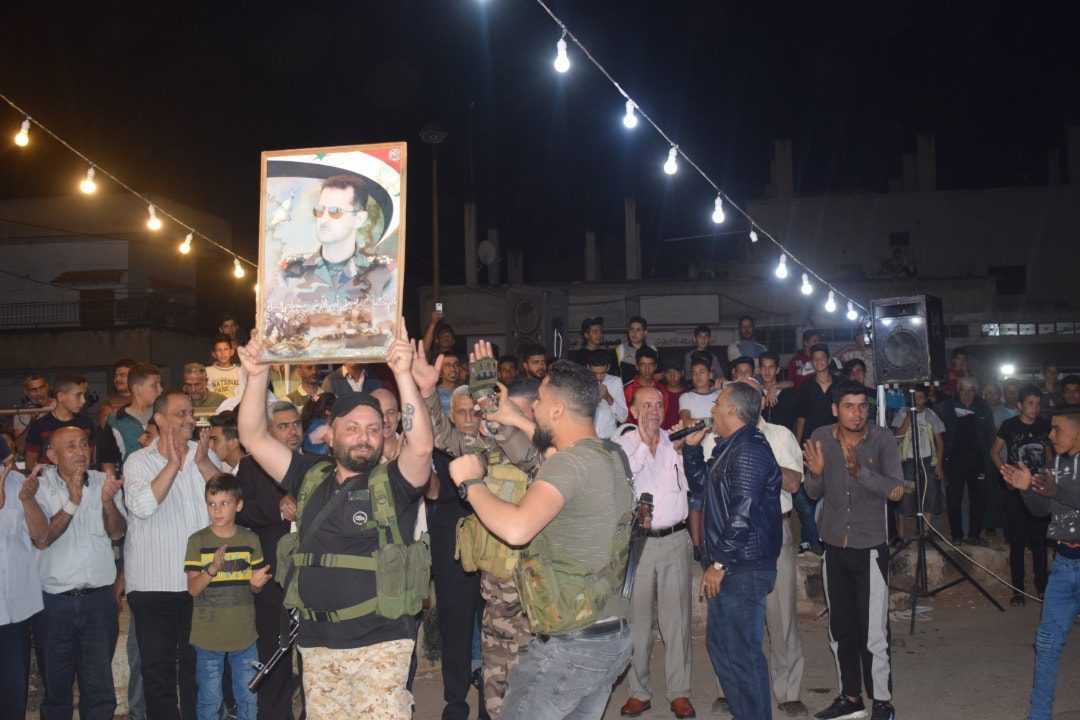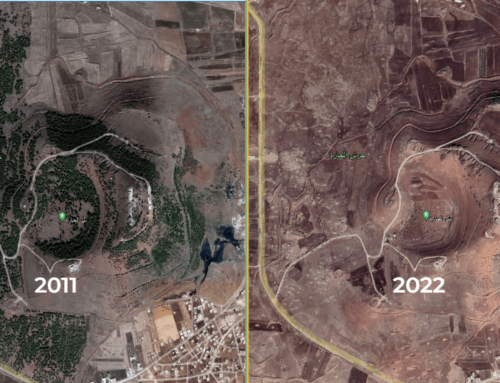Will Houran vote in Syria’s upcoming presidential elections?
While the regime and its allies seek to legitimize Bashar al-Assad’s rule through the upcoming presidential elections, key players in southern Syria stress its lack of credibility.
13 May 2021
AMMAN — The Syrian presidential elections scheduled for May 26 are the second to be held since the revolution erupted in March 2011. However, they are effectively the first elections in which Daraa province will participate after government forces regained control over southern Syrian under the highly-criticized, Russian-sponsored “settlement agreements” in summer 2018.
While Bashar al-Assad and his Russian allies race against time to garner public and international support for the pre-decided elections, popular and local forces in southern Syria’s Daraa and Quneitra provinces have already rejected the elections. These forces are keen not to allow the poll to take place in the area and, consequently, deprive the Assad regime of an opportunity to claim popular support there, especially since the regime has linked its control of Daraa (also known as Houran) and Quneitra to the end of the war in Syria.
Rejected elections
Activists and public figures in Daraa and Quneitra provinces issued statements in recent weeks rejecting the upcoming presidential elections and refusing to open polling stations in the area. In the first such statement issued on April 23, a group of activists in the city of al-Hirak, east of Daraa,rejected the opening of polling places there, calling on “the revolutionaries” to not tolerate those promoting the elections.
Before that, on April 19, notables of the city of Busra al-Sham, also in eastern Daraa, rejected an offer made by a Russian delegation to the city based on increasing Busra al-Sham’s allocations of fuel, flour and other services in exchange for demonstrations in support of the presidential elections.
One of those who attended the meeting said in a voice recording posted on social media that “we were surprised by the Russians’ request to organize a demonstration in support of the upcoming presidential elections.” He added that “the Russian delegation doesn’t care how many participate, they just want there to be one, even if in small numbers.” But the response from local leaders was “categorical rejection,” according to the recording.
This refusal was confirmed by a military commander in one of the settlement factions (the former armed opposition factions that entered into settlement agreements with the regime) in the eastern countryside of Daraa. “Force will be used, if necessary, to prevent this farce,” he told Syria Direct. “The pre-decided elections are rejected, and we will not allow them.”
In the same context, activists from several cities and towns in the Daraa and Quneitra countrysides have published statements calling for a boycott of all aspects of the elections. The statements include messages threatening those promoting the polls. The latest of these was a statement published on Friday titled, “A Statement from the Free People and Revolutionaries of the Free and Defiant Quneitra Province.” It rejected Bashar al-Assad’s candidacy and the elections themselves, warning “the downtrodden civilian brothers not to approach the election centers.”
In contrast, local pro-regime media sources have published pictures they said were of popular celebrations “in support of Bashar al-Assad” in the cities of Izraa and Daraa al-Mahatta (the northern part of Daraa city) and the town of Jabaab. However, these areas have always been under regime control.
Will Daraa vote?
“Houran, overall, will not go to the ballot box,” said a former military commander in the opposition factions who is based west of Daraa and declined to be named for security reasons. However, “in some areas where the regime is extending its grip on security,” he told Syria Direct, “employees, students and petitioners of government institutions will be forced to vote for Bashar al-Assad.”
Muhammad Abdulmajid (a pseudonym), a government employee in the city of Inkhil, north of Daraa, echoed the same opinion. Abdulmajid oversaw one of the ballot boxes at a polling station during the latest elections for the People’s Assembly (Parliament). “The regime will force the city’s residents and employees to vote for Bashar al-Assad, as happened in the latest People’s Assembly elections,” he told Syria Direct. “Due to the low turnout, which was limited to Baath Party members and the shabiha [pro-regime paramilitaries] in the city during the People’s Assembly elections, ready-made lists reached us with the names of people in the city, including martyrs and detainees, voting for them.”
He did not rule out the regime repeating what happened in the People’s Assembly elections at the ballot box this time.
But in other areas that remain outside of the regime control to some extent and controlled by the settlement factions per the “settlement agreements,” the situation will be different, according to the former opposition military commander. He expected that “ballot boxes will enter most of Daraa’s towns, except some that are still taking a public stance in opposition.” Even so, the turnout in areas with ballot boxes will likely “be limited to [Baath] Party members and the shabiha,” he said, adding that “the people and the military factions reject the regime and its elections.”
The commander also did not discount the possibility of some polling places in the Houran being “attacked by residents and rebels to close the ballot boxes.”
A member of the Central Committee in the western Daraa countryside, which negotiates with the regime and representatives of Russia as the guarantor of the summer 2017 south Syria reconciliation, said “the Central Committee rejects these elections because they do not fulfill the ambition of the Syrian people. They are rigged elections that lack credibility, freedom of expression.” He described them as “mock elections to suggest to the world that there are elections, while the reality is that the result is already known: the victory of Bashar al-Assad.”
“We will resort to our legitimate and natural right to express our rejection of these elections,” the Central Committee member told Syria Direct, “through peaceful and legitimate methods such as demonstrations and protests.
“At the same time, we will not prevent anyone who wants to elect Bashar al-Assad from exercising their right to vote and will not prevent [ballot] boxes from coming in. We as the opposition are boycotting these elections and will not vote for anyone because they are illegitimate.”
The Central Committee member criticized “the regime and Russia for not inviting the Central Committee to discuss the electoral process and its mechanism.” However, the military commander revealed that “a meeting is supposed to be held within the next two weeks between members of the Central Committee, Russia and the regime to discuss security and service issues. Perhaps Russia and the regime will touch on the elections in an attempt to win over the Central Committee.”
This report was originally published in Arabic and translated into English by Mateo Nelson.







